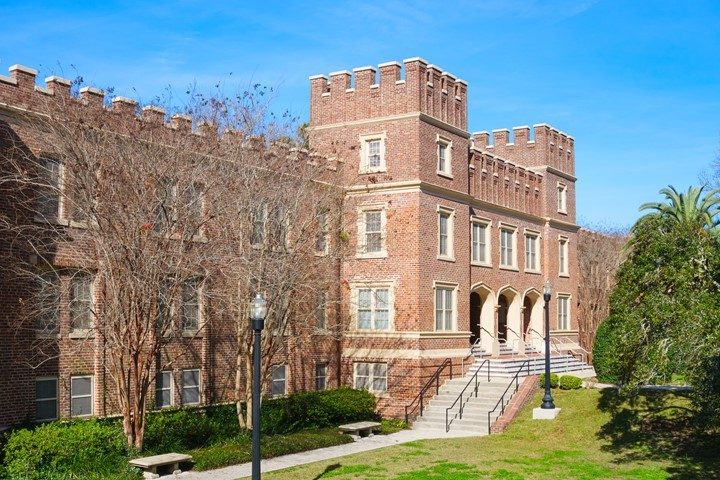
Florida State University (FSU) has settled a case with a recent graduate who was forced out of his position as student senate president after he privately expressed religious reservations about Black Lives Matter (BLM) and other left-wing organizations.
As The New American reported in September, Jack Denton, a Catholic who got his sheepskin from FSU in April, was elected president of the student senate in 2019 after two years as a senator.
Last June, a fellow FSU student sent a video in a group chat for the Catholic Student Union, of which both this student and Denton were members. The video was used to raise money for an array of causes.
“The various funds on that list are fine causes as far as I know,” Denton wrote back, “but everyone should be aware that BlackLivesMatter.com, Reclaim the Block, and the ACLU all advocate for things that are explicitly anti-Catholic.”
Asked for clarification, he responded, “BlackLivesMatter.com fosters ‘a queer-affirming network’ and defends transgenderism. The ACLU defends laws protecting abortion facilities and sued states that restrict access to abortion. Reclaim the Block claims less police will make our communities safer and advocates for cutting PDs’ budgets. This is a little less explicit, but I think it’s contrary to the Church’s teaching on the common good.”
Denton went on to explain that he was making his opinion known because “if I stay silent while my brothers and sisters may be supporting an organization that promotes grave evils, I have sinned through my silence.”
The student who sent the video was offended by Denton’s remarks and forwarded them to Denton’s fellow senators. During a senate meeting later that day, Senator Kundhavi Gnanam sponsored a vote of no confidence in Denton as president, falsely claiming he had “described me and my community as ‘grave evils.’” Gnanam’s motion failed.
The “tolerant” progressives weren’t done with Denton, however. After two more days of pressure, during which practically every other organization on campus condemned Denton’s words, the senate held a seven-hour Zoom call in which Gnanam once more called for a no-confidence vote. Other students piled on, saying they didn’t “feel safe with [Denton] as president,” thought he was a “racist” and “transphobe,” and didn’t care about his “First Amendment right to free speech” even though FSU, as a state institution, is bound to uphold it. Gnanam even declared that “freedom of speech should not come at the expense of anyone’s … comfortability.” (Apparently, this does not apply to the misrepresentations and vitriol spewed at Denton.)
In the end, Denton was removed from office.
After his appeals to the student supreme court and FSU administrators went unheeded, Denton, represented by attorneys from the Alliance Defending Freedom (ADF), sued the school in federal court. In October, U.S. District Judge Allen Winsor issued a preliminary injunction ordering FSU to pay Denton the student senate president’s wages while his lawsuit was in progress. Two weeks later, the FSU student supreme court reinstated Denton as student senate president.
Denton and FSU finally came to terms last week. Although the university admitted no wrongdoing, it agreed to several concessions to settle the suit. First, it will pay Denton $10,000 in damages and $1,050 in back pay. Second, it will also pay nearly $84,000 in attorneys’ fees to ADF. Third, it will amend the web page listing past and present student senate presidents to indicate Denton’s October reinstatement. Fourth, it will issue a statement affirming its commitment to freedom of speech and religion.
“Public universities can’t single out and punish students for their religious beliefs,” ADF legal counsel Logan Spena said in a press release. “We are pleased that Florida State has finally affirmed its commitment to students’ First Amendment rights on campus. All students should be able to peacefully share their personal convictions without fear of retaliation.”
ADF senior counsel Tyson Lanhofer told the Daily Caller that Denton’s victory is reason for optimism.
“If you stand against cancel culture, you can win,” he said. “Cancel culture is scary and it’s very active, but Jack shows that if you stand, you can win.”
“I hope that’s the message students across the country see when they hear about Jack’s case.”


